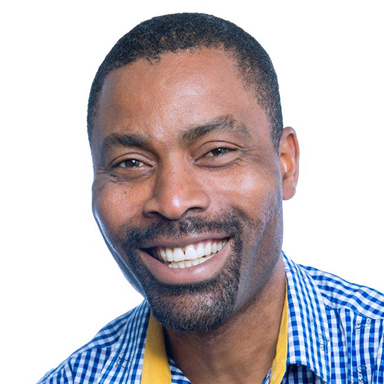Setting healthy boundaries for a toddler isn’t easy, but they are important and it’s worth sticking with them. A Mediclinic paediatrician explains why.
Dr Poly Orji, a paediatrician at Mediclinic Bloemfontein, says you need to be firm when setting boundaries – both for your own sake and for your upset toddler's.
“Setting boundaries is an important aspect of toddlers’ development,” he says. But this doesn't mean taking away all their freedom. “Boundaries are clear, consistent limits set with love and respect. They’re not about controlling your child or squashing their spirit. Think of boundaries as the edge of your child's sandbox: they define where it’s safe for your child to play, explore, and learn.”
Benefits of healthy boundaries
Introducing healthy boundaries early on supports toddler development, says Dr Orji. Here are the benefits:
- Security and trust: Clear boundaries help toddlers understand what’s expected of them. A structured environment makes them feel safe and builds their trust in their caregivers.
- Self-regulation: By setting limits, parents teach toddlers to manage their emotions and learn to tolerate frustration, which is a vital skill for emotional development.
- Predictability and structure: Healthy boundaries help toddlers know what to expect, which can reduce their anxiety. The key is to be clear and consistent.
- Conflict resolution and power struggles: When a toddler understands the rules and limits, it helps prevent power struggles between them and their caregivers.
- Respect and empathy: Boundaries help toddlers understand the needs and boundaries of others, which is essential for developing social skills and empathy.
- Understanding consequences: Boundaries teach toddlers that their actions have consequences, whether good or bad, helping them learn from their mistakes. This helps them develop responsibility and accountability, which are important for their future success.
How to set healthy boundaries for toddlers
The earlier you start setting boundaries, the better, says Dr Orji. “Age 12 to 15 months is ideal. That’s when they’re beginning to learn about their bodies and others’ personal space.”
There are three essential types of boundaries that toddlers need:
- Physical boundaries
Toddlers need to learn about personal space. Teach them to respect other people's space and understand that everyone has their own boundaries. They also need to learn about physical safety, like what’s safe and appropriate in different situations, such as how to handle toys. - Emotional boundaries
Help your toddler learn to recognise and express their feelings in the right way. It’s also important for them to understand how others feel and how to respond. Teach them how to cooperate with others and handle disagreements or conflicts properly. - Energetic boundaries
Toddlers need to learn about limits. Healthy boundaries help them understand what’s okay and what’s not, which makes them feel secure and helps them control themselves.
Boundaries also help toddlers understand and respect family rules, says Dr Orji, creating a safe and structured environment.
Enforcing boundaries might mean having some firm conversations with well-meaning grandparents, aunts, and uncles. “Make sure everyone in the family and all caregivers are on the same page about boundaries. Consistency is key because toddlers will always try to see if they can get around the rules.”
Long-term benefits of healthy boundaries
By setting boundaries for your little one, you’re helping them to succeed, even as they grow into adults. “Toddlers who learn to respect other people’s boundaries carry that respect into adulthood,” says Dr Orji.
They also become more resilient as adults. “Dealing with limits and small frustrations helps them handle bigger challenges later in life,” he explains.
Although boundaries may seem restricting, they actually encourage independence as your child grows. “Boundaries around safety help children learn how to assess risks, while rules about activities help them manage their time,” says Dr Orji. “All of this leads to greater independence in adulthood.”
Further publications on the topic
Doctors 1


